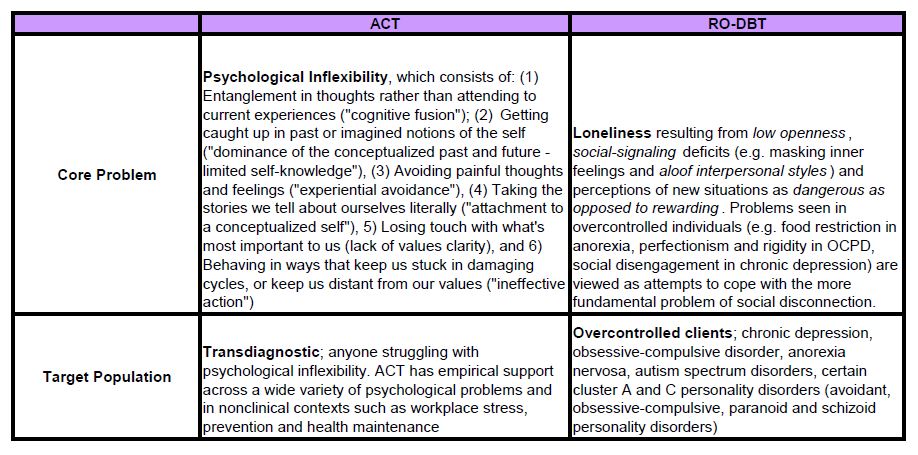Newer forms of Cognitive Behavioral Therapies are on the rise. These therapies share certain elements (e.g. an active and collaborative therapeutic alliance, the use of traditional behavioral strategies and an understanding that cognition can maintain behaviors). Yet, each type of therapy is distinct in important ways, with unique underlying theories, assumptions, mechanisms of change and treatment approaches. An understanding of these distinctions can help therapists discern when and how these approaches may serve a client.
Below, we provide a summary table contrasting key differences between Acceptance and Commitment Therapy (ACT) and Radically Open Dialectical Behavioral Therapy (RO DBT). For more detailed information about the distinction between third-wave therapies, please see this review article. We hope this chart can be a useful reference tool for your clinical practice!
Click on the image below to access the full table.
You can also download the table here.
Written by: Jason B. Luoma, & Christina Chwyl
